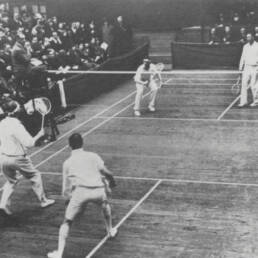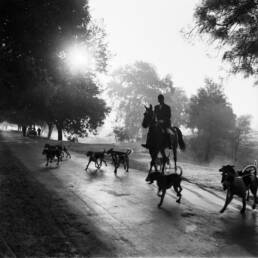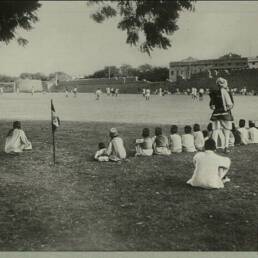The oral storytellers who're banned by the British & Nizam
- History
- Culture
- Music
What if we tell you there was a rural community of oral storytellers who was banned by both the British Raj and the Nizam of Hyderabad because they posed a significant threat to imperialism and feudalism?
Burrakatha was an oral storytelling technique in the Jangam Katha tradition, performed in villages of Andhra Pradesh and Telangana. The troupe mostly consisted of the main performer(kathakadu) and two others – hasyaka(joker) and rajakiya(politician).
They would perform stories on either Hindu mythology (Jangam Katha) or contemporary social issues through dance, songs, poems, jokes, dramas or monologues. It used to be an all-night session of storytelling to entertain a village.
Traditionally, the art form originated as devotional music by Telugu nomadic groups but at the turn of the early 20th century, a modern form of Burra Katha had emerged. It became sharper, secular and socio-political.
During the independence movement (first half of the 20th century) in Andhra, Burrakatha was revolutionized and made into a medium of mass awakening to educate the villagers on current political practices. Storytellers became rebels.
The two side artists – the joker and the politician – were key to the narrative adding strong social messages from the Jallianwala Bagh massacre to Gandhi’s non-cooperation movement, to the centre story plot.
Recognizing it as a growing threat and a tool of mass uprising, the storytellers of Burrakatha were banned in Madras province by the British government. Years later, the tide took a different turn in the 1940s.
During Telengana’s armed rebellion against the feudal monarchy of Hyderabad, the Communist party leveraged the ancient art of storytelling as a form of resistance, as they were banned from public gatherings.
Hundreds of Burrakatha troupes were trained and performed across myriad villages in Andhra under the strong protection of guerrilla fighters. The storytellers became the political epicentre of peasant movements, that prompted a ban from the Nizam.
In independent India, Burrakatha had been used by both national/state governments to educate the rural mass on everything from family planning to polio vaccination drives. However, the advent of television and the internet has pushed folk storytellers to the verge of extinction.
Acknowledgements
- Performers and Their Arts: Folk, Popular and Classical Genres in a Changing India/: Laxmi N. Kadekar, Simon Charsley, Wikipedia.
- Countercurrents.org/MA Krishna and S. Jatin Kumar







